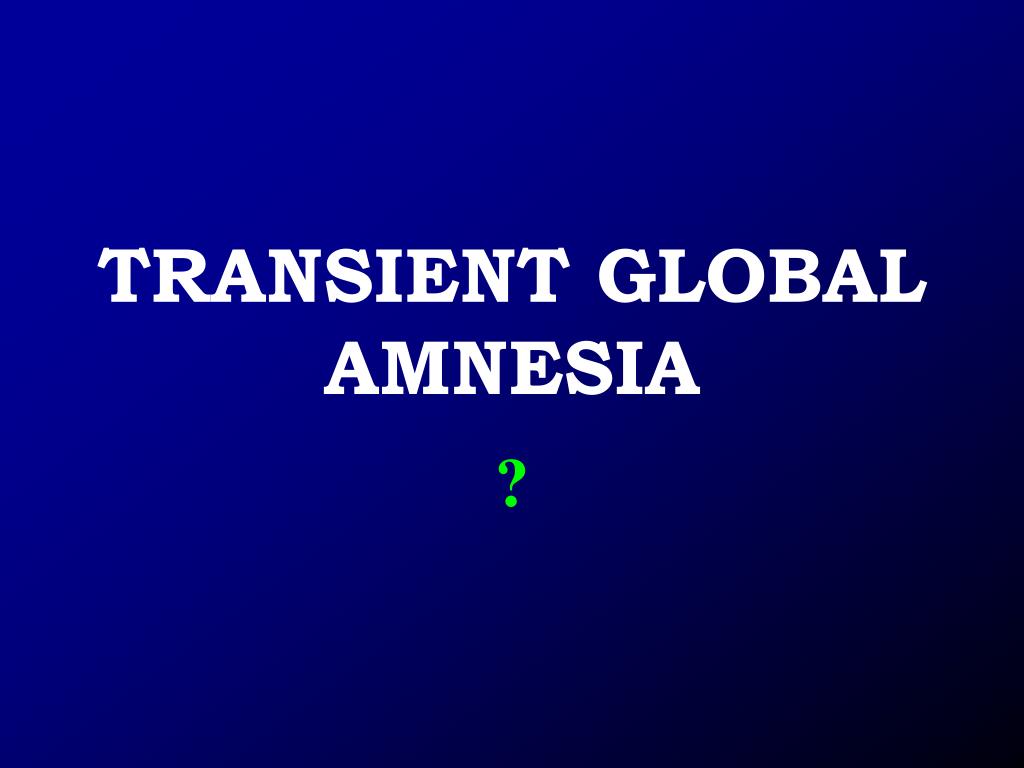

After the acute attack resolves, the patient is left with a period of amnesia for the time of the episode. An affected patient is characteristically densely amnesic and appears confused, repeatedly asking questions such as “Where am I?” or “What are we doing?” The event typically lasts for several hours, and during this time there is both anterograde and retrograde amnesia, although knowledge of personal identity is maintained. Transient global amnesia (TGA) is a syndrome of sudden onset, occurring in late middle or old age. Nestor, in Neurology and Clinical Neuroscience, 2007 Transient Global Amnesia Recurrence occurs in less than one-fourth of the patients. The condition is self-limited, and there is no specific treatment. MRI and EEG should be performed, but they are normal in TGA. The pathophysiology is unknown both epileptic mechanisms and vascular mechanisms have been proposed. TGA often appears in the setting of an emotional or physical stress. A residual retrograde amnesia for the hours immediately surrounding the event is often permanent. Patients typically appear agitated and will repeat the same question over and over, such as “What am I doing here?” The anterograde amnesia clears gradually after minutes to hours and usually resolves completely within 24 to 48 hours.

Cognitive function and language are intact, except for profound anterograde amnesia and retrograde amnesia for the preceding several hours or days. Typically, they are brought in by a relative or friend because they are “confused.” On examination, there are no focal neurologic deficits.

Patients are typically over age 50, often with hypertension, or other vascular risk factors, but may be quite healthy. Mayer MD, FCCM, in On Call Neurology, 2021 Transient Global Amnesia Addressing underlying neurologic conditions including migraine or pursuing workup for seizures beyond routine EEG can sometimes be helpful. The condition is self-limiting and there is no specific treatment, although some physicians have advocated using aspirin 325 mg per day for secondary prophylaxis. MRI should be obtained to evaluate for a seizure-producing lesion sometimes small unilateral hippocampal signal abnormalities are identified on diffusion-weighted imaging (DWI), particularly when performed 24 to 48 hours after the event. The EEG is usually negative, but a positive EEG allows treatment with anticonvulsants to be given. The differential diagnosis includes unwitnessed head trauma or seizure, drug intoxication, stroke, dissociative states, and neurocognitive disorders associated with thiamine deficiency (including Wernicke encephalopathy and Korsakoff syndrome). The pathophysiology is unknown epileptic, migrainous, and vascular mechanisms have been proposed but have not been proved. Cognitive function and language are intact, except for a profound anterograde amnesia and a retrograde amnesia for the preceding several hours or days. Patients with transient global amnesia (TGA) are middle-aged or older, often with hypertension, prior ischemic episodes, or atherosclerotic heart disease but are otherwise healthy.


 0 kommentar(er)
0 kommentar(er)
